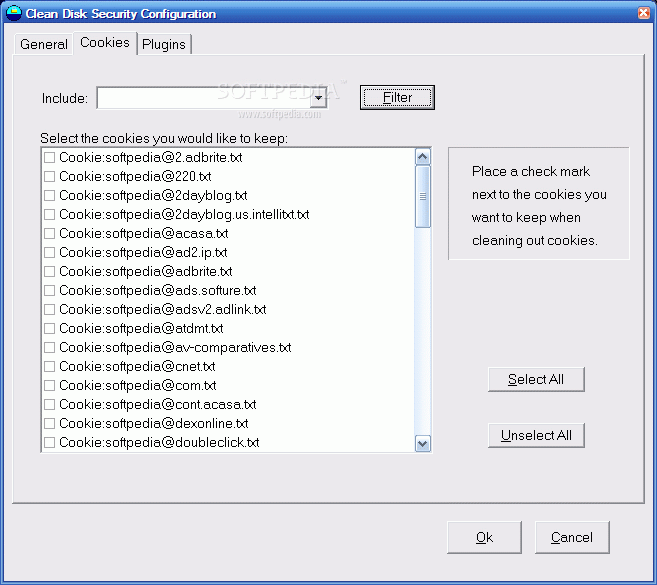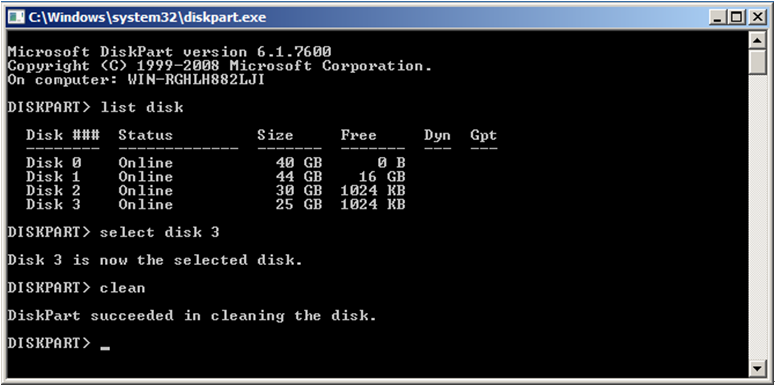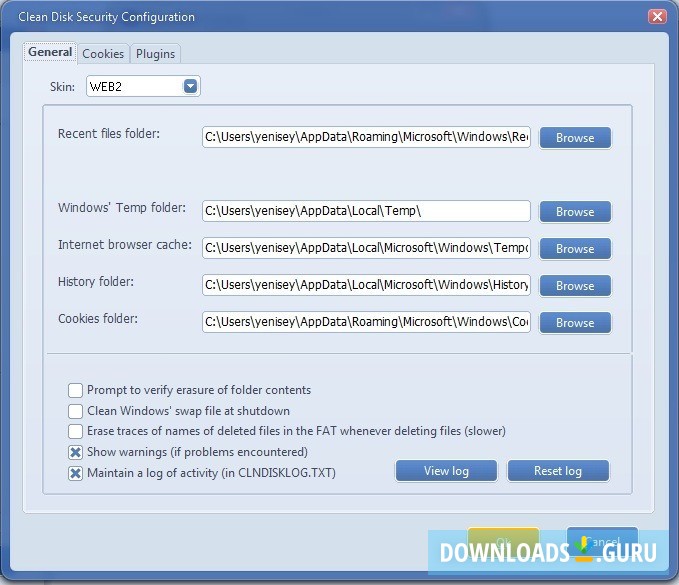
The dind-volume-provisioner deployment should have permissions to create/attach/detach/delete/get EBS volumes. The configuration assumes that you have installed the Runner with the default options: codefresh runner init AWS backend volume configurationįor Codefresh Runners on EKS or any other custom cluster in Amazon, such as kops for example, configure the Runner to work with EBS volumes to support caching during pipeline execution. Add the string below after one of the commas:Īfter installation, configure the Kubernetes cluster with the Codefresh Runner to better match your environment and cloud provider.Kubectl edit cm codefresh-dind-config -n codefresh-runtime
#Clean disk security v7.84 install#
Only a Codefresh account administrator can install the Codefresh Runner. If you save the token, even if or when you delete the deployment, you can use the same token to restore the Runner’s permissions without having to re-install the Codefresh Runner. The printed token includes the permissions used by the Runner to communicate with the Codefresh platform and run pipelines. Install Runner with CLI Wizardĭuring installation, you can see which API token will be used by the Runner (if you don’t provide one). If the Kubernetes cluster with the Codefresh Runner is behind a proxy server, complete Runner installation. Install Codefresh Runner with CLI Wizard.Use any of the following options to install the Codefresh Runner: You don’t need to install the Codefresh CLI on the cluster running Codefresh pipelines. After installation, the Runner authenticates on its own using the details provided.

The Runner is not needed in clusters used for deployment, as you can deploy applications on clusters without the Runner.Īccess to the Codefresh CLI is only needed when installing the Codefresh Runner.

You must install the Codefresh Runner on every cluster that runs Codefresh pipelines. The Codefresh Runner authenticates to your Codefresh account using the CLI token. Install the Runner from any workstation or laptop with access to the Kubernetes cluster running Codefresh builds, via kubectl. System requirements ItemĪny compliant container runtime, as the runner is not dependent on any special dockershim features. If you require 100% availability, we do not recommend using spot instances. Using spot instances can cause failures in Codefresh builds as they can be taken down without notice. The docker socket/daemon used by Codefresh pipelines is NOT the one on the host node (as it might not exist at all in the case of containerd or cri-o), but instead an internal docker daemon created/managed by the pipeline itself.
#Clean disk security v7.84 code#
These pipelines run on your infrastructure, even behind the firewall, and keep code on your Kubernetes cluster secure.Īs the Codefresh Runner is not dependent on any special dockershim features, any compliant container runtime is acceptable. Install the Codefresh Runner on your Kubernetes cluster to run pipelines and access secure internal services without compromising on-premises security requirements. Run Codefresh pipelines on your private Kubernetes cluster Improve this page on GitHub Codefresh Runner installation

Install multiple runtimes with a single Runner (agent).Customized Codefresh Runner installations.Monitoring disk space in Codefresh Runner.Override default runtime environment for a pipeline.View Codefresh Runner and runtime environments.Add custom labels to dind and engine pods.GKE (Google Kubernetes Engine) backend volume configuration.Install Codefresh Runner with values file.


 0 kommentar(er)
0 kommentar(er)
